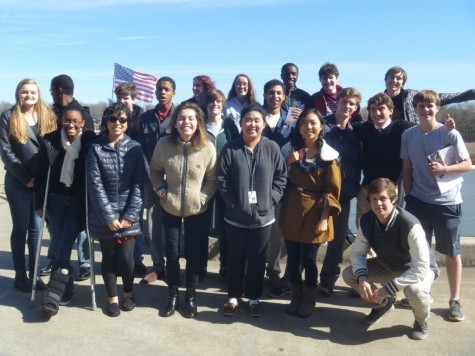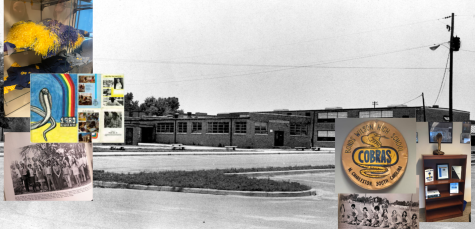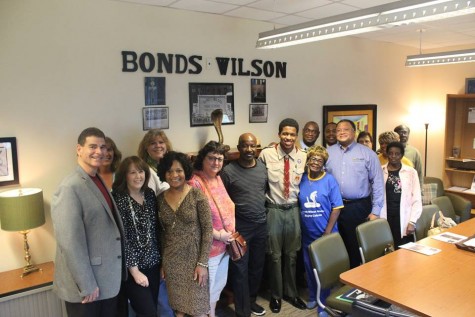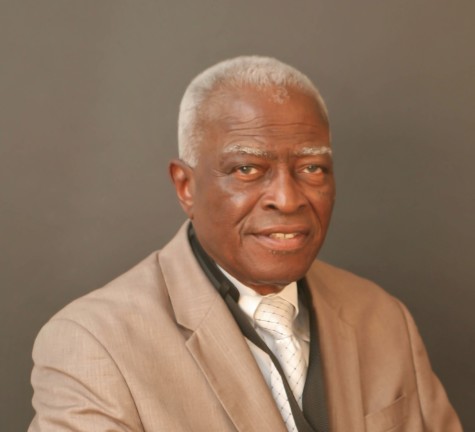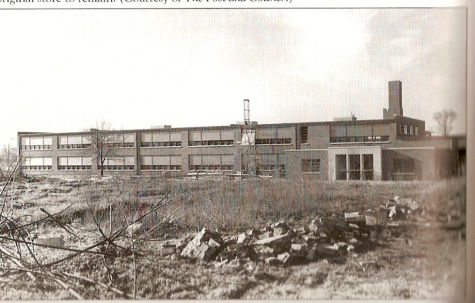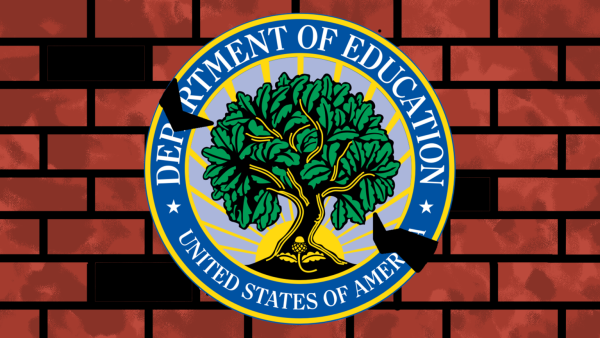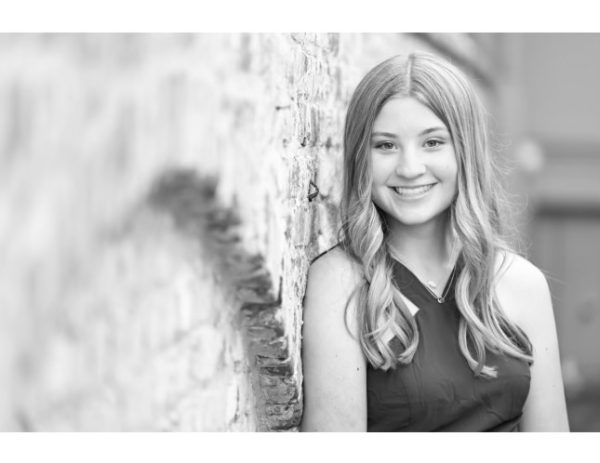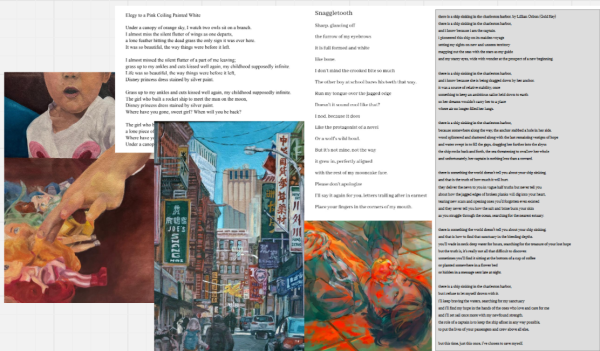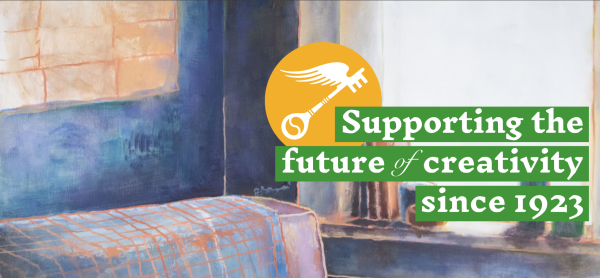AMHS Students Attend Liberty Hill Symposium Aboard the Yorktown
This past Friday, February 6, 2015, a group of Academic Magnet juniors and seniors attended the Boys of Liberty Hill presentation at Patriots Point. The Bonds-Wilson campus, which includes the Academic Magnet, is located in the Liberty Hill community today.
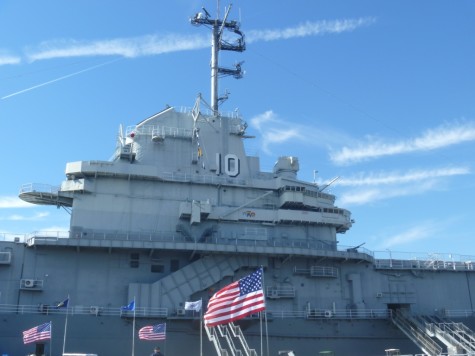
In honor of Black History Month, the event recounted the participation of Liberty Hill in the Vietnam War. It was streamed live to US military units.
Among the distinguished guests was Lonnie Hamilton, famed Charlestonian musician and former band director at Bonds-Wilson High School. After being introduced by Mac Burdette, the executive director of the Patriots Point Development Authority, Hamilton opened the presentation by performing the Star-Spangled Banner with fellow musician Ann Caldwell. From Denmark, South Carolina, he was the first African American elected to the Charleston County Council.
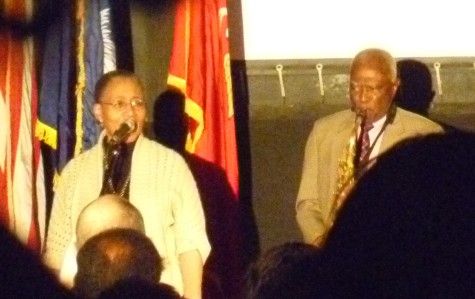
Next, Keith Grybowski narrated the history of Liberty Hill and integration in the context of the Vietnam War. Established in the nineteenth century by freed slaves, Liberty Hill is the oldest neighborhood in the north area of Charleston. Its 600 members when the Vietnam War erupted were like a high school community, and 64 Liberty Hill men served in the war. Eight made the ultimate sacrifice: Harold Mac, Jr., Billy Williams, and Nathan White, Jr., were among the young students and graduates of Bonds-Wilson High School and North Charleston High School who were killed in action and memorialized at the presentation.
The United States began to integrate the military during the Korean War when the front lines needed replacements for lost white soldiers. About a decade later, in 1963, Clemson became the first integrated public college in South Carolina. On July 4, 1964, the Civil Rights Act was passed, and on March 8, 1965, the first combat soldiers in South Vietnam. Close to home, on September 1, 1965, North Charleston High School was first integrated. The Charleston Evening Post announced this event with the article “Schools Open Quietly Under Mixing Plan.”
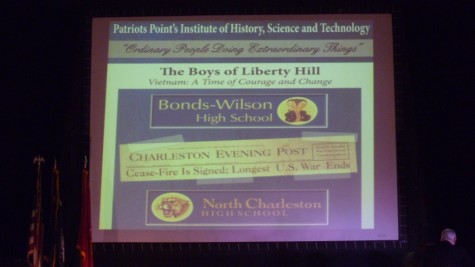 Grybowski then gave the stage to two seniors from North Charleston High School, who presented poetry they had written about Liberty Hill’s relationship with Charleston. Their powerful words expressed the pain of discrimination and the value of all human life.
Grybowski then gave the stage to two seniors from North Charleston High School, who presented poetry they had written about Liberty Hill’s relationship with Charleston. Their powerful words expressed the pain of discrimination and the value of all human life.
Subsequently, sportscaster and reporter Warren Peper was excited to introduce Henry Darby, author and teacher; Odell Price, retired Vietnam veteran; and Alfreda Levaine, sister of Nathan Price, who gave his life in Vietnam at the age of 19.
“It’s living history in some respects,” Peper, a graduate of North Charleston High School, said to an audience ranging from young Academic Magnet, North Charleston, Fort Dorchester, and other local high school students to people who had grown up with the Liberty Hill veterans.
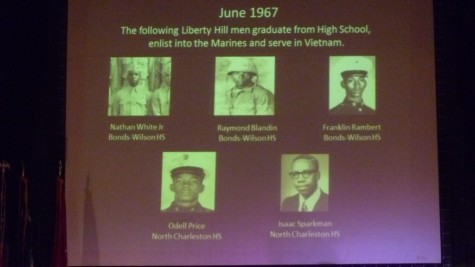
The book that had provided the foundation for the presentation was Liberty Hill’s Vietnam Fighting Men by Henry Darby, the assistant principal at Fort Dorchester High School. As a young adult, he yearned to write about Dr. Martin Luther King, Jr., and was also inspired by Liberty Hill’s contributions in Vietnam.
Veteran Odell Price volunteered to be one of the first five black citizens to attend the newly integrated North Charleston High School. “It was just a trying time,” he said. After graduating in 1967, he joined the US Marines and participated in the Battle of Khe Sanh. While he was in Vietnam, the Orangeburg Riots occurred near South Carolina State University, showing that racial tensions were still strong. Highway patrol officers killed three African Americans protesting racial segregation, and twenty-eight others were injured.
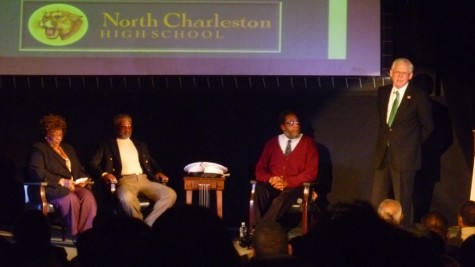
The Liberty Hill community welcomed Price back warmly when he returned, as it was insulated from the general American anti-war sentiment and proud of its veterans. “They were more than just your next door neighbor,” Price said of his fellow citizens.
“And you wore that uniform?” Peper asked.
“I wore it any chance I got!” Price responded, beaming with pride.
Alfreda Levaine remembered that her brother going to war “wasn’t against my mother’s wishes, but he was the only son.” She missed her brother but was proud of his sacrifice; he was killed trying to save another soldier from drowning.
Peper recalled, “There’s no black and white when you’re on the front line. There’s one common color: blood.”
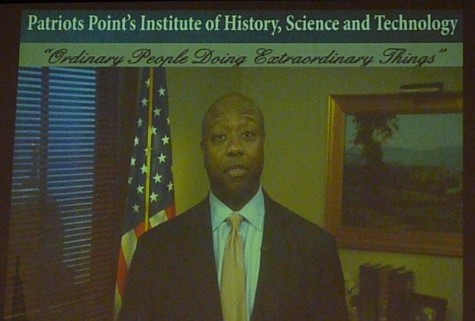
Following a message of gratitude to Price, Levaine, and Darby for their service to the Charleston community from Senator Tim Scott, Peper concluded with a reminder not to take lightly that there could be someone around us who seems ordinary but who in fact has done something extraordinary, like the boys of Liberty Hill.
